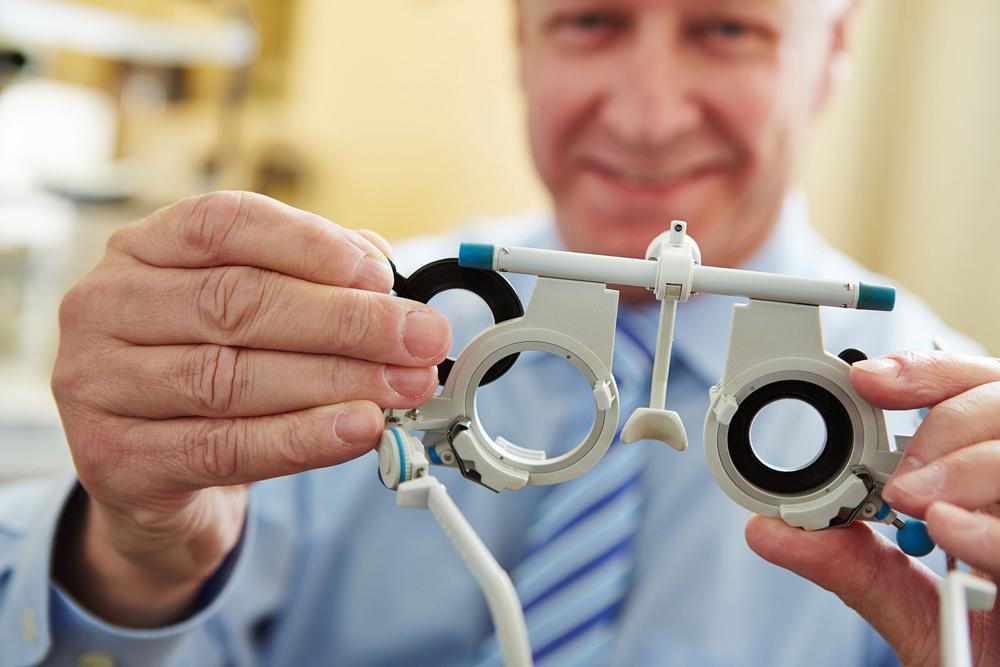How Optometrists and Opticians Differ

When it comes to eye care, many people use the terms optometrist and optician interchangeably, but these two professions have distinct roles in maintaining eye health and providing vision correction. Understanding the differences between optometrists and opticians can help individuals make informed decisions about their eye care needs.
The Role of an Optometrist
An optometrist is a healthcare professional who specialises in eye examinations, vision correction, and detecting eye diseases. Optometrists undergo extensive training to assess eye health, diagnose vision problems, and prescribe corrective lenses. They are the primary point of contact for individuals experiencing vision changes, discomfort, or other eye-related concerns.
Optometrists perform comprehensive eye tests to check for refractive errors such as short-sightedness, long-sightedness, and astigmatism. They also assess eye coordination, depth perception, and overall visual function. If necessary, they prescribe glasses or contact lenses to correct vision impairments.
In addition to vision assessments, optometrists play a crucial role in detecting eye diseases such as glaucoma, cataracts, and macular degeneration. They use specialised equipment to examine the retina, optic nerve, and other structures of the eye. If a serious eye condition is identified, they may refer patients to an ophthalmologist for further evaluation and treatment.
The Role of an Optician
An optician, also known as a dispensing optician, is responsible for fitting and dispensing prescription eyewear. While opticians do not diagnose eye conditions or prescribe lenses, they ensure that patients receive the correct eyewear based on their optometrist’s prescription.
Opticians are trained in interpreting prescriptions and helping patients select the most suitable frames and lenses for their needs. They take precise measurements to ensure a proper fit, considering factors such as lens thickness, frame shape, and pupillary distance. Their expertise is essential in making sure that glasses provide optimal vision correction and comfort.
Opticians also assist patients with contact lenses, offering guidance on insertion, removal, and proper care. They may advise on lens materials, coatings, and treatments that enhance visual clarity and durability. While opticians do not perform eye examinations, they provide valuable support in ensuring patients receive the best possible eyewear.
Training and Qualifications
Optometrists undergo extensive education and clinical training before becoming qualified to practise. In the UK, they must complete a degree in optometry, followed by a pre-registration year under supervision. After passing the General Optical Council (GOC) assessment, they become fully registered optometrists, allowing them to perform eye exams, diagnose conditions, and prescribe corrective lenses.
Opticians follow a different training path, typically completing a diploma or degree in dispensing optics. They must also register with the GOC to practise professionally. While their training focuses on the technical aspects of eyewear and lens dispensing, they do not have the medical expertise to diagnose or treat eye diseases.
When to See an Optometrist or Optician
If experiencing vision problems, discomfort, or concerns about eye health, visiting an optometrist is the first step. Optometrists provide full eye exams, identify refractive errors, and check for eye diseases. They also offer advice on eye care and recommend appropriate treatments or specialist referrals if necessary.
For those who already have a prescription and need new glasses or contact lenses, an optician is the right professional to visit. Opticians help choose frames, adjust lenses, and ensure a comfortable fit. They also provide aftercare services, such as frame adjustments and lens repairs.
Working Together in Eye Care
Optometrists and opticians work closely together to ensure patients receive the best possible eye care. An optometrist conducts the examination and provides a prescription, while an optician ensures that the patient receives the correct eyewear. Both roles are essential in maintaining good vision and supporting overall eye health.
Understanding the differences between optometrists and opticians allows individuals to seek the right professional for their specific eye care needs. Whether it’s getting an eye test, updating glasses, or finding the perfect contact lenses, both professions contribute to maintaining clear vision and healthy eyes.

